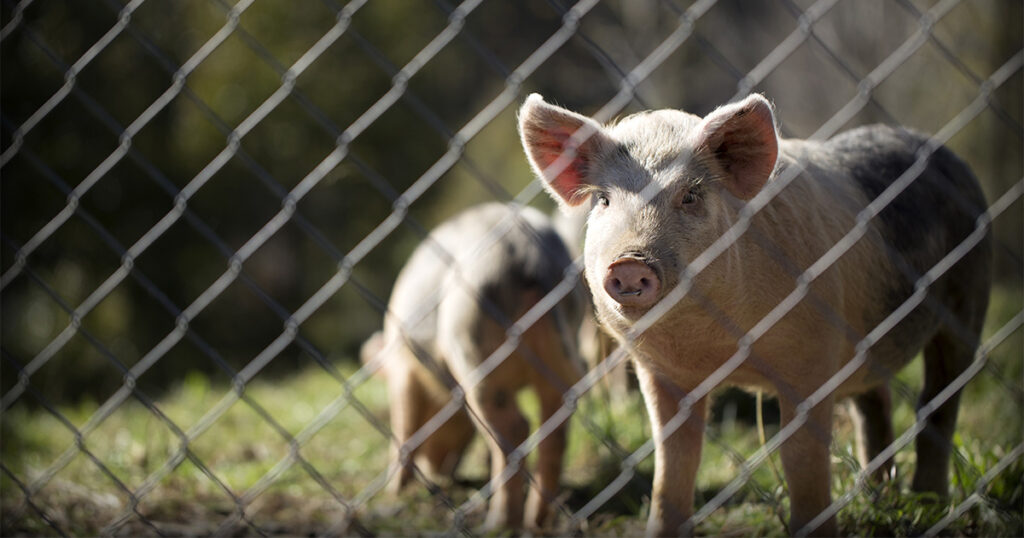The use of hose mesh is another step towards isolating and protecting pig farms, bringing greater biosecurity to the activity.
In recent decades, the increase in demand for food has led the pig industry to increase production volume, without compromising biosecurity. To achieve this, every detail needs to be considered, including the screens on the farms. So, get to know the hose screen.
Developed with the aim of surrounding and isolating farms, this screen is another barrier that prevents pigs from being exposed to pathogenic agents, which cause diseases such as flu and swine fever.
In this content, understand the importance of biosecurity in pig farming, as well as the advantages of hose mesh to achieve this goal.
Biosecurity on farms: an essential measure to guarantee the health of pigs
Brazilian pig farming is a large producer and exporter of pork. Data from the Brazilian Animal Protein Association (ABPA) highlights that in 2022 Brazil produced 5 million tons, exporting 1.2 million tons, with China as the main destination.
Therefore, adopting all biosecurity actions on pig farms is essential. According to Embrapa, biosecurity consists of measures to prevent the entry and spread of diseases in the herd.
Furthermore, the same document highlights that the main biosecurity measures in pig farms are based on:
Isolation of the farm, at a safe distance, from possible vector outbreaks;
Fencing the property, preventing the presence of unauthorized people and animals;
– Washing and sanitizing the facilities;
– Restriction of visits;
– Sanitary void between each batch;
– Adoption of the vaccination program;
– Rapid isolation and treatment of animals that become ill;
– Strict quality control of feed ingredients;
– Correct treatment of effluents; It is
– Correct disposal of waste from pigsties.
In addition to these measures, the use of clean and treated water to feed the animals, as well as to clean the facilities, are also essential.
Therefore, the practices must be put into practice on the farms, with attention from the planning of activities to the structure of the farm. Thus, with emphasis on the hose screen. Find out below!
Hose screen: isolate and protect the pig farm
Hose screen on the pig farm
As with poultry production, pig farming needs to meet safety and biosecurity standards, which aim to protect animals in the breeding environment. In this context, screens play a fundamental role.
The main objective of the screens is to isolate and protect the farm against external agents. However, it is essential to pay attention to the characteristics of the screen. The material, for example, cannot hurt the animal (when it touches the screen). It should also make handling easier.
In this case, the hose screen, manufactured from plastic material by ROMA, is an excellent option.
Following Ordinance 265, of September 17, 2018 from ADAPAR (Paraná Agricultural Defense Agency), the ROMA Pig screen was developed to efficiently surround and isolate the farm.
With this solution, exposure of livestock to pathogens and bacteria, which cause various diseases that compromise animal biosecurity, such as flu and swine fever, is avoided.
In this context, the screen provides fencing around the perimeter of the shed, manure pits and biodigesters. Therefore, the product’s advantages include:
– Do not rust when exposed to gases and liquids;
– Do not cause injury to pigs;
– Withstand climate variations;
– Easy to install.
Furthermore, ROMA’s mangueirão fabric has greater thread thicknesses (higher weight), as well as a longer useful life, with certified and proven durability for 5 years.
Therefore, we recommend that you get to know the ROMA hose screen, and have the best product available to surround and isolate the pigs on your farm, ensuring the biosecurity of the production system.
Did you like this solution? Then request a quote to have the best screen for farms on the market


